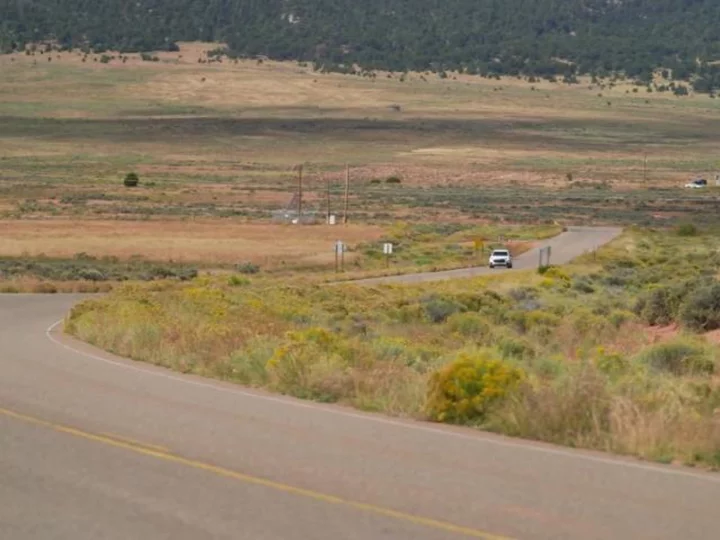FBI personnel have surged to tribal lands across the United States in past months to help solve violent crimes and cold cases impacting Native Americans, the agency told CNN in an exclusive interview.
The urgent effort, deemed Operation Not Forgotten, involved dozens of special agents, intelligence analysts, and professional staff fanning out to Native American reservations across 10 US states.
Death and sex violence cases
Working with tribal law enforcement, the FBI surge teams conducted hundreds of witness and victim interviews, addressing more than 200 cases involving primarily women and children who had been victims of violent crime, officials said.
"The main focus of our cases were death investigations and sexual abuse crimes," said FBI Section Chief Jonathan Tapp, who helped oversee the operation.
"Those agents respond to scenes, they process evidence, they arrest subjects and interview witnesses," said Tapp. "Simultaneously our intelligence personnel are ... locating information, processing leads, and determining locations of additional victims."
Tapp said the FBI surge resulted in the launching of 40 arrest and search operations, and the identification of four children who had been victims of crimes previously unknown to law enforcement.
"We also recovered one child who had been reported missing during this effort to help our tribal communities," said Tapp.
'Heartbreaking' crimes
In addition to the FBI operational teams making arrests and gathering intelligence, another group operated behind the scenes: the FBI's Victim Services Division.
Formed in 2001, the team of victim specialists routinely deploys to critical incidents across the country aiding victims with crisis intervention support, emergency travel, and assistance in obtaining counseling and housing.
In Operation Not Forgotten, FBI victim advocates with specialized training in the cultural sensitivities of Indigenous communities engaged with Native American crime victims to make them aware of their rights under the law and the numerous resources offered to aid in their healing, officials said.
"Victim specialists engage one on one with victims, our tribal partners and the community to resolve cases [of] murdered and missing indigenous persons -- women and children especially," said Tapp, and "are present to see the closure, albeit heartbreaking at times."
Not enough attention
Prior to the start of Operation Not Forgotten, CNN also obtained exclusive access to the FBI's efforts to locate nearly 200 Native American and Indigenous people missing from the Navajo Nation spanning portions of New Mexico and Arizona.
Advocates have long insisted cases of missing and murdered Native Americans do not receive the attention they deserve from police and the press.
"The missing and murdered Indigenous peoples crisis is centuries in the making, and it will take a focused effort and time to unravel the many threads that contribute to the alarming rates," said Secretary of Interior Deb Haaland last year.
The crisis of missing persons on Indigenous lands spurred the FBI into action, enlisting the agency's intelligence resources best known for fighting crime and terrorism to create a master database of missing Native Americans.
"Each one of these people on this list has a story," FBI Supervisory Intelligence Analyst Ryan Summers told CNN. "We'd like to be able to have a positive resolution for as many of these family members as we possibly can."
The database includes photos of the missing along with their age, gender and date of last contact. Officials said their hope is it leads to more tips and leads from the public.
Navajo Nation police officials partnering with federal law enforcement told CNN they face a number of challenges, including limited evidence in tribal communities and families who may not be comfortable talking to police.
Despite the challenges, the FBI said it will continue to devote significant resources to solving crimes on tribal lands.
"It's a priority because all people matter," said FBI Special Agent in Charge Raul Bujanda. "Native Americans, everywhere we go, they are embedded in the fabric of who we are as a society."

